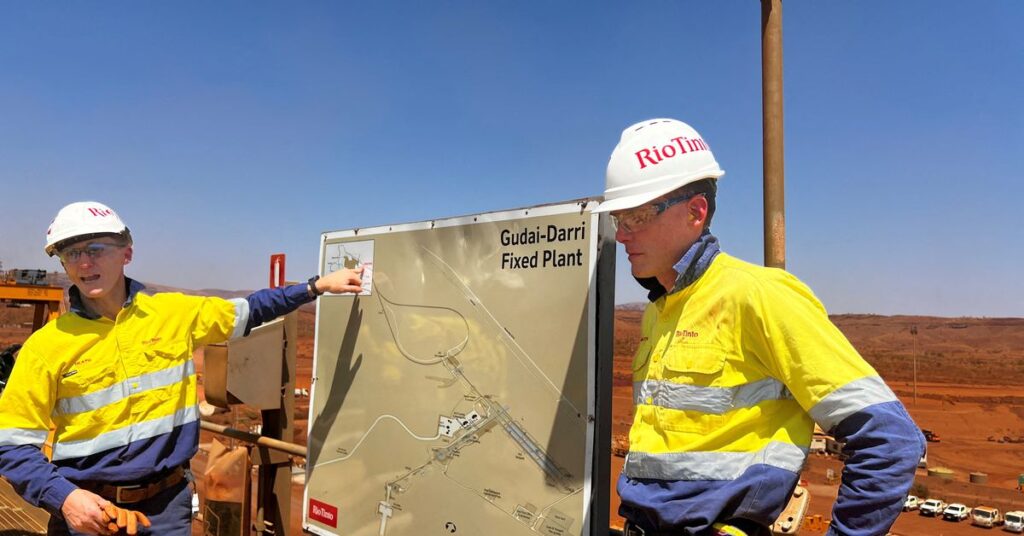[1/3]A workers details the operations of Rio Tinto’s Gudai-Darri iron ore processing plant, 1,120 kilometres (695 miles) north east of Perth, in Australia, October 19, 2023. REUTERS/Melanie Burton Acquire Licensing Rights
MELBOURNE, Oct 18 (Reuters) – Rio Tinto (RIO.AX) plans to raise output by 16% at its newest iron ore mine in Western Australia as it sets out step by step changes that will bring it back to record production levels as soon as 2025.
The world’s biggest iron ore producer will increase production capacity at its Gudai-Darri mine in the Pilbara region of Western Australia by 7 million metric tons to 50 million tons a year at a cost of $70 million, it said on Wednesday.
It did not set a time frame but analysts expect Rio to get there by 2025. Its improvements include a greater use of autonomous technology in drills, trucks and rail lines.
Rio said last week it expects iron ore shipments of 323 million to 338 million tons in 2024 at Pilbara, the top end of which would bring it into line with its 2018 record, before it pushes ahead to reach its medium term shipments guidance of 340-360 million tons a year.
“In the next 10 years, globally, just as many people are going to urbanise as in the last decade,” iron ore division chief Simon Trott told journalists.
“The mine developments that are needed to sustain that scale are enormous. And so if you look forwards over the next 20 years, we’re going to use more iron ore than we’ve used in the last 30.”
Rio reported a 1.2% rise in its third-quarter iron ore shipments on Tuesday, helped by production ramp up at the Gudai-Darri mine. It shipped 83.9 million tons of iron ore from Pilbara in the September quarter, compared with 82.9 million a year earlier.
“RIO’s Pilbara turnaround continues,” said Goldman Sachs in a research note.
Its medium term goal “appears achievable” given depletion of existing mines will be offset by around 130 million tons a year of new mine capacity from five mines, it said.
“We believe that RIO can achieve medium-term production guidance of 340-360Mtpa (million tons per year) from 2025 with the ramp-up of the 25Mtpa Western Range from 2H24 and production creep from Guidai-Darri and Robe River,” it said.
Rio will next develop Australia’s biggest iron ore deposit in the form of Rhodes Ridge, which contains 6.8 billion tons of 61.6% iron ore, sits next to existing infrastructure and has the capacity to produce more than 80 million tons year.
“The high grade Rhodes Ridge deposit has the potential to be significant for RIO’s Pilbara business as it could lift system capacity, utilise spare rail and port infrastructure and help close the free cash flow per tonne gap with BHP over the medium to long run,” Goldman Sachs added.
Reporting by Melanie Burton
Editing by Mark Potter
: .


